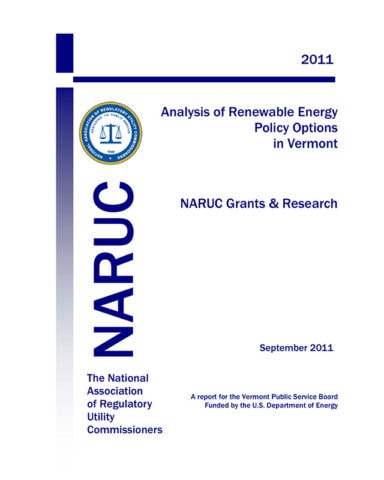Analysis of Renewable Energy Policy Options for Vermont: The SPEED Program and Renewable Portfolio Standard
Clean Energy States Alliance and Sustainable Energy Advantage
This report aims to provide the Vermont Public Service Board (PSB) with information that will help it fulfill a request by the Vermont Legislature to study whether Vermont should continue the Sustainably Priced Energy Development (SPEED) program or implement a renewable portfolio standard (RPS). It is based on stakeholder input, a review of the RPS programs in other states, and economic analysis of the potential costs and benefits of alternative SPEED and RPS designs for Vermont. Although the report does not offer recommendations, it seeks to provide more than simply background information. It sets out the questions and issues that should be considered in the process of deciding whether to continue SPEED or implement an RPS, and then when deciding what the specific design of the selected policy should be. It identifies the specifics advantages and disadvantages of taking a variety of different policy approaches. Both an RPS and the Vermont SPEED program are policy mechanisms that seek to address the barriers that can inhibit renewable energy from coming online. An RPS is a mandate that a state‘s electricity supply include a minimum quantity of renewable energy. It requires electricity suppliers to get a certain—and usually gradually increasing—percentage of their electricity from renewable energy sources. It is the most popular and widely used state policy mechanism for encouraging wholesale renewable energy power development, with 29 states plus the District of Columbia and Puerto Rico having mandatory RPSs.

